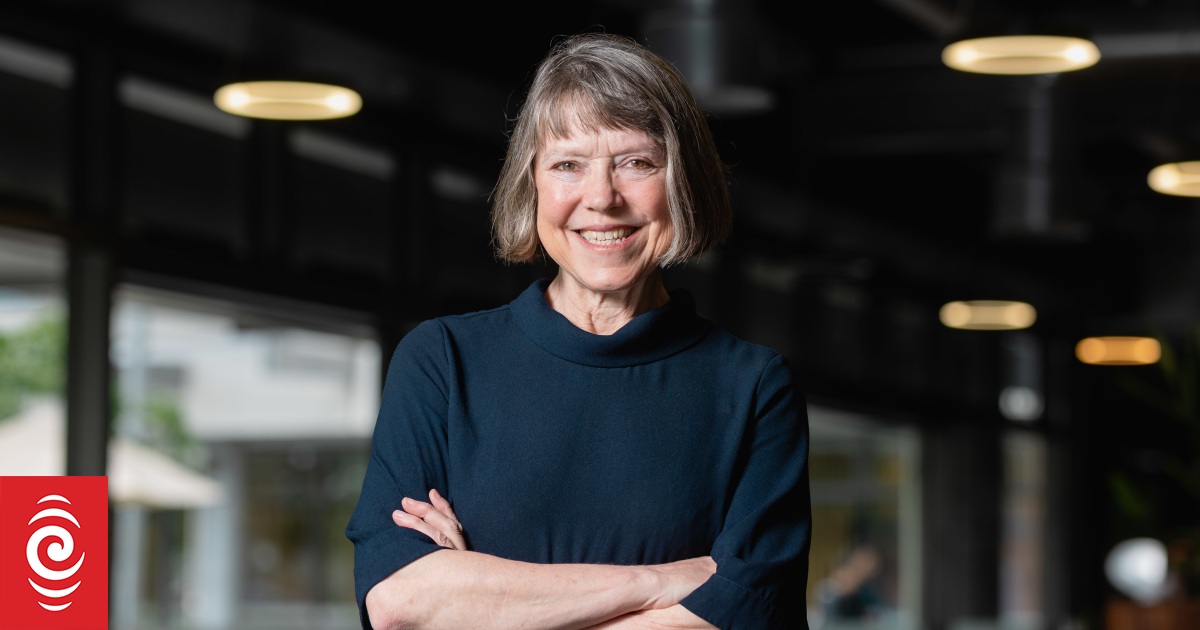
Ground-breaking gene-editing treatment leaves patient feeling like they have 'a new body'
Being given a whole new body might sound like something from a sci-fi movie but a New Zealander says a new genetic treatment has felt just like that.
12:49 pm on 25 January 2023
Niva Chittock, Reporter
niva.chittock@rnz.co.nz

Immunologist Dr Hilary Longhurst says hereditary angioedema is hard to diagnose and very dangerous if left unchecked. Photo: Supplied by University of Auckland
Being given a whole new body might sound like something from a sci-fi movie but a New Zealander says a new genetic treatment has felt just like that.
Hereditary angioedema is a rare immune deficiency that causes random, disabling and potentially lethal swelling.
It is estimated one in 50,000 people are living with the disorder.
Judy Knox had lived with hereditary angioedema for decades.
Without medication, the attacks were debilitating.
"I would get swelling in the abdomen and it makes you feel a lot of pain and also you get a lot of nausea and vomiting. It can be quite prolonged, lasting as long as six to eight hours," Knox said.
Children have a 50 percent chance of inheriting the gene if their parent has it.
Rose was diagnosed at five years old and had weekly attacks.
"As a child, I was in and out of hospital for treatment... I missed out on quite a few things that any normal child got to do and it was always in the back of my mind. I missed a lot of school growing up also," she said.
The swelling was often triggered by injuries or illness, Rose said.
University of Auckland immunologist Dr Hilary Longhurst said the condition was hard to diagnose and very dangerous if left unchecked.
"When people go to their doctors with this condition, they'll be treated for allergies but allergy treatments don't work. So the families will learn that actually there's no point in going to the emergency room, there's no point in going to the doctor," Longhurst said.
"If they don't have the correct diagnosis, they'll suffer in silence, often for many years."
But Judy Knox and Rose are two of 10 people with hereditary angioedema who have had no symptoms for months.
US company, Intellia Therapeutics, chose New Zealand to be the first place to trial a ground-breaking gene-editing technology in late 2021 and 2022.
Longhurst, the principal investigator, said the therapy was delivered via a miniscule ball of fat.
"It's an injection or an infusion that gives a substance that goes to the liver and releases a bit of genetic material which snips the gene causing the problem," she said.
"The gene heals naturally and the treatment material is removed naturally by the body over a few days."
Each transfusion was given at the New Zealand Clinical Research facility in Auckland, with each patient intensely monitored.
Rose said the eight months since her infusion had been incredible.
"I've been able to push my body physically more than I ever have been before and those nights where you don't get much sleep are no longer triggers [for an attack]," she said.
"It's like living with a new body again really because... the options are unlimited now."
Knox felt ecstatic to no longer be reliant on medication - which she was not using for the first time in 35 years.
"All of the medication that we have is not funded. It costs a huge amount. I mean, the injections alone, just the little ones I still carry in case of a flare up - they're $1500 to $2000 each," she said.
"With this gene-editing treatment, it removes all of that. Plus, it makes your life safe."
Knox's son also had the gene and lived remotely.
Texting him was the first thing she did after realising the treatment was working.
"It's such a relief... I said to him 'hey listen, this is wonderful - put your hand up and get it done'."
It was something Longhurst was committed to.
"My ambition is that people with hereditary angioedema will be able to live a normal life without symptoms, and it's almost in our grasp," Longhurst said.
Rose was overcome by emotion talking about the difference the treatment made to her life, and had a message for others.
"To anyone living with a rare disease, there are new, promising medications being developed constantly, so... don't give up. Don't give up on hope. There are always things being developed that can be life-changing," she said.
The 10 patients undergoing the treatment will continue to be monitored monthly, and if results continue to be successful, the technology may also be used to treat other conditions.